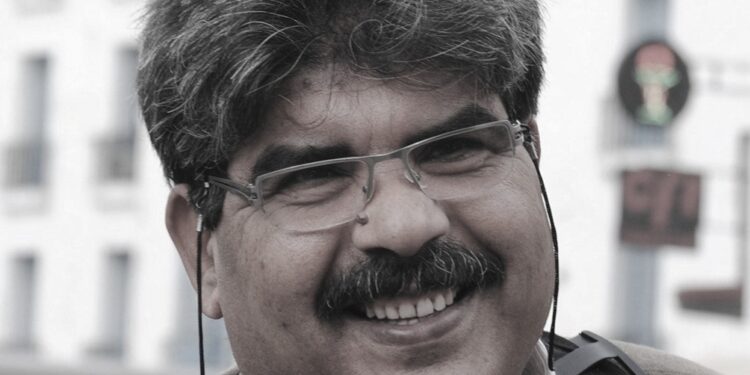Twelve years after the assassination of Mohamed BrahmiMP for Sidi Bouzid and figure of the Tunisian nationalist left, a verdict was pronounced. Eight people were sentenced to death. But for relatives, lawyers and defenders of rights, the trial did not close the wounds of incomplete justice.
A political assassination in broad daylight
On July 25, 2013, Mohamed Brahmi was shot dead in front of his home at Ariana, under the eyes of her family. Eleven bullets fired at close range by two men on a motorcycle. The deputy for the popular current, known for his outspokenness and his sovereignist positions, tragically joined Chokri Belaïd, murdered six months earlier.
The weapon used is the same. The investigation quickly turned to members of the jihadist group Ansar Shariathen directed by Abu Iyadh. One of the main suspects, Ahmed Malkinicknamed Soumaliwas arrested in February 2014. But the file, exploded between civil, military and anti -terrorist jurisdictions, trampled for more than a decade.
A heavy, but late verdict
THE February 25, 2025the Tunis court of first instance pronounced a historical verdict ::
These decisions, praised by part of the opinion as a turning point, remain insufficient in the eyes of the family of the deceased. “We know who fired, but not who decided,” said Mbarka Aouinia Brahmiwidow of the deputy.
An unknown American note
Among the shadow areas of the file is still the CIA notetransmitted to the Tunisian authorities July 14, 2013. She warned an assassination project targeting Mohamed Brahmi. This document, never transmitted to the Ministry of the Interior at the time, did not prevent crime.
In 2023, the authenticity of this alert was confirmed as part of a partial reopening of the file. No political or security officials, however, was prosecuted for non-assistance or negligence.
Justice rendered, but partial
There 5ᵉ Criminal room specializing in terrorism has thus ruled, but No light was made on real instigatorsnor on the exact role of political networks in the climate of extreme tension preceding the murder.
Key elements of the file, in particular technical reports, have been lost or not paid to the file. Several investigating judges have been replaced over the years, without continuity or transparency.
There parliamentary committeesuspended since the dissolution of the Parliament in 2021, has never published its final conclusions.
A dispersed political heritage
Mohamed Brahmi has been resting since 2013 in the Martyrs of the Djellaz cemetery, alongside Chokri Belaïd since 2013. Two men, two visions, but the same tragic end. If public places today bear its name, the political impact of Brahmi has flocked. THE Popular currentnow led by Zouhair Maghzaouiremains active but marginalized.
Brahmi’s memory remains lively in its native region of Sidi Bouzidcradle of the Tunisian revolution, where citizen rallies continue to claim “truth and not revenge”.
An institutional wound
The Brahmi case goes beyond the legal register alone. She questions the ability of the Tunisian state to protect her opponents, to investigate political violence, and to guarantee the transparency of security institutions.








